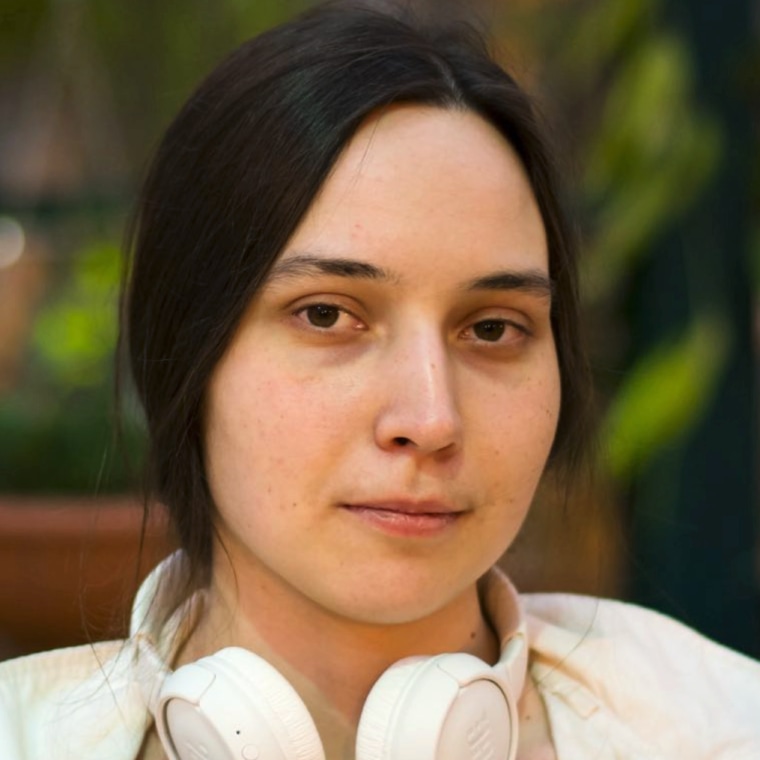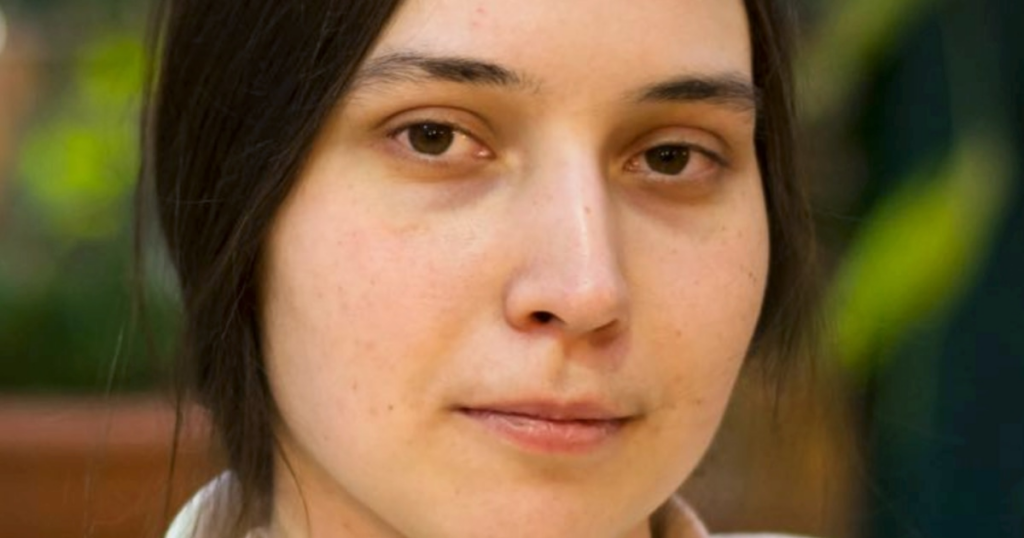A Russian medical researcher at Harvard University is being detained at a Louisiana immigration facility after her visa was revoked last month over undeclared frog embryo samples found in her luggage, her lawyer told NBC News.
Kseniia Petrova has been in the U.S. on a J-1 scholar visa since May 2023, working at Harvard University. Her lawyer, Gregory Romanovsky, said Petrova is fighting the possible deportation back to Russia for fear of persecution and jail time over her protests decrying the Ukraine war.
On Feb. 16, Petrova returned from France to Boston’s Logan Airport from a work trip and passed through immigration without issue. But while awaiting her luggage, two Customs and Border Patrol (CBP) officers took her into a room to inspect her luggage and searched her phone, her lawyer said.
Inside, officers found a sample of frog embryos from her research.

“They find a sample, scientific sample of frog embryos that she was bringing at the request of her principal investigator, her professor at Harvard, from the lab in France that they are collaborating with,” Romanovsky said. “She had that in her luggage, and she did not declare it. She had no previous experience with bringing samples. She didn’t really think this through. She didn’t she didn’t look up the requirements. It was her fault. She was supposed to declare that item. She did not.”
Romanovsky said CBP is supposed to impose two penalties for typical customs violations: forfeiture of the item and a fine of usually about $500.
“They did not do that. Instead, they decided to punish her by canceling her visa,” Romanovsky said. “This is when all hell broke loose … They said, ‘Kseniia, we’re canceling your visa. We’re going to put you back on the plane to Paris. You flew from Paris to Logan.'”
Under the Immigration and Nationality Act Section 212, several reasons can be given for denying entry into the U.S., including health-related issues, a criminal record, and terrorism. Romanovsky said that while CBP can cancel visas, they need a reason to merit it, and in Petrova’s case, they did not.
Instead, CBP gave Petrova two choices. The first was to withdraw her application for admission to the U.S. and leave voluntarily, with the opportunity to go to an embassy in another country and apply for a visa to re-enter the U.S. The second was that CBP would issue an order of expedited removal, and she’d be put on a plane back to Paris. However, due to a ban on re-entry under an order of deportation, she wouldn’t be able to return to the U.S. for at least five years.
Romanovsky said she chose to withdraw her application for admission.
“Please put me back on the plane to France, I’m going to do what you tell me to do. I’m going to apply for a visa. I want to do the right thing,” Petrova said at the time, according to her lawyer. “And they said, ‘Okay, that’s fine. Would you like us to notify the Russian government of what happened today, or the Russian Consulate?'”
Her lawyer said Petrova told them not to notify the Russian consulate, saying, “I cannot go to Russia. I will be persecuted there.”
Petrova has a history of persecution there over her political activity, Romanovsky said. She was arrested in Russia in 2022 for protesting the Ukraine war, The Harvard Crimson reported.
“She has been detained there, and her detention and her social media activity will almost certainly ensure a nice, hefty jail sentence for her, so at that point when she said, ‘I can’t go back to Russia,’” he said.
Her arrest comes amid a Trump administration crackdown on immigration, including revoking hundreds of student visas and appearing to target scholars for activism. Many of those individuals had been involved in free speech protests on campuses decrying human rights violations in Gaza in the Israel-Hamas war. Petrova’s case appears unique, however, as her activism is not related to the Israel-Hamas war, but opposing the Russian war in Ukraine.
Romanovsky said CBP then followed what’s called a credible fear process where noncitizens can claim they have a credible fear of persecution or torture and request asylum in the U.S. In that case, the individual is asked to present their case before an immigration judge.
“This is where she’s at right now, she has established credible fear,” the lawyer added.
She’s now waiting for a hearing before an immigration judge in Jena, Louisiana, set for May 7.
However, even if the immigration judge grants asylum, the government can appeal and they can continue to keep her in detention.
“I would love to say that she’s going to know where she stands in a couple of months, and she’ll be out if she gets approved, but we don’t know that,” Romanovsky said.
At the same time, Romanovsky said, they have a pending lawsuit filed against the Department of Homeland Security and CBP in the District of Vermont —where she was detained before being transferred to Louisiana. The hearing for the lawsuit, which alleges improper visa revocation and her initial detention, is scheduled for June 9.
A DHS spokesperson told NBC News on Friday that Petrova was “lawfully detained after lying to federal officers about carrying biological substances into the country.”
“A subsequent K9 inspection uncovered undeclared Petri dishes, containers of unknown substances, and loose vials of embryonic frog cells, all without proper permits,” the spokesperson said. “Messages found on her phone revealed she planned to smuggle the materials through customs without declaring them. She knowingly broke the law and took deliberate steps to evade it.”
Romanovsky advocating for Petrova’s release from ICE as she awaits her immigration court hearing.
“She’s certainly a victim of the new policy where people are held indiscriminately, held and not released, regardless of whether they’re a threat to anybody or whether flight risk,” Romanovsky said. “There’s really no sense to continue to hold her she’s just taking up bed space. She’s not a danger to the community. She’s not a flight risk.”
He described Petrova as a “brilliant scientist” and a “very, very sweet person. She’s a very good friend, and she’s a very trustworthy, reliable, and kind individual.”
Romanovsky said her principal investigator at Harvard asked the attorney to give letters from Nobel Prize winners in support of Kseniia.
Harvard confirmed in a statement Friday that she is a research associate at Harvard Medical School, saying, “We are monitoring this situation.”


